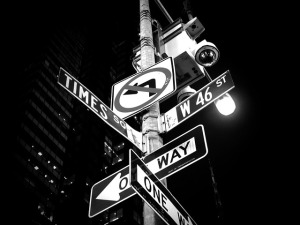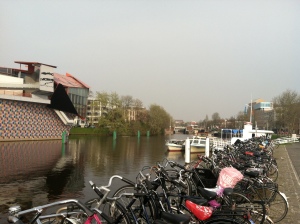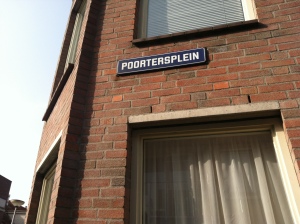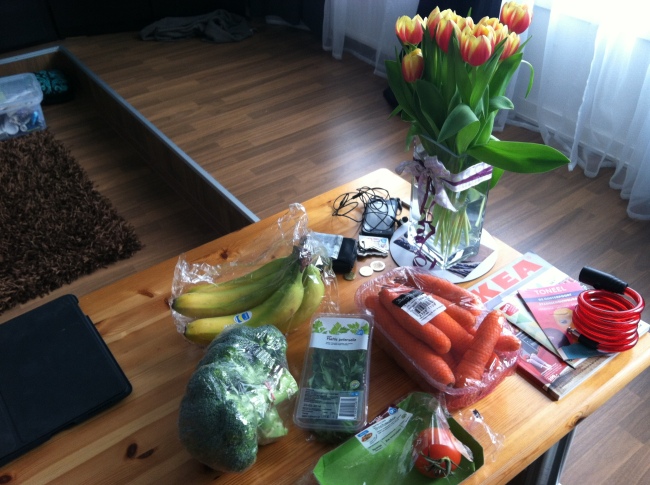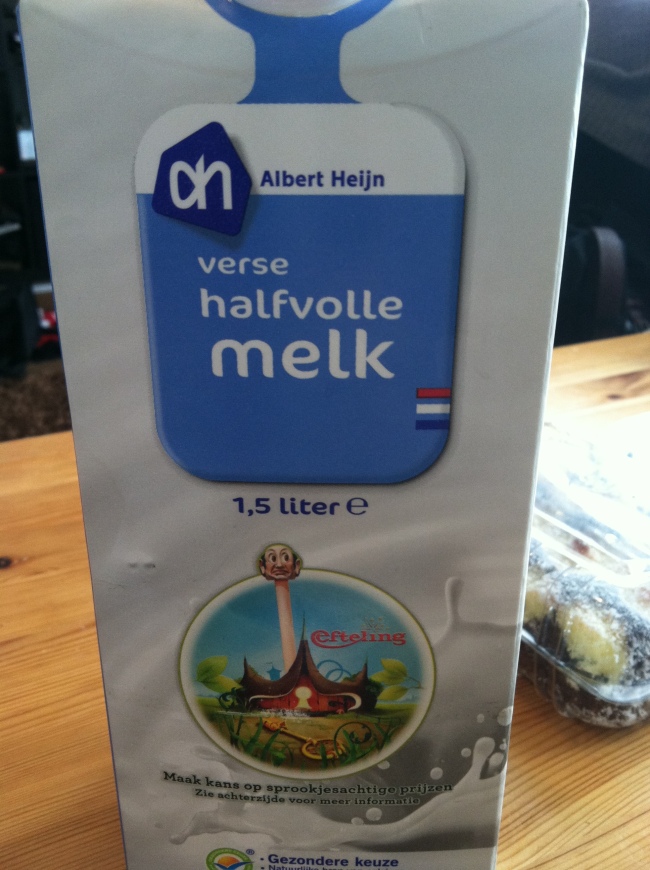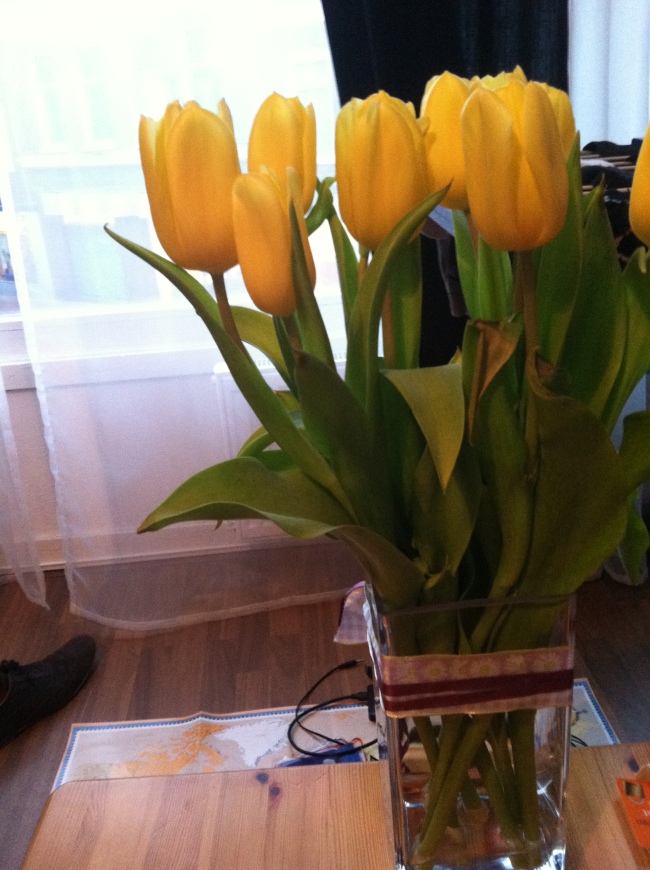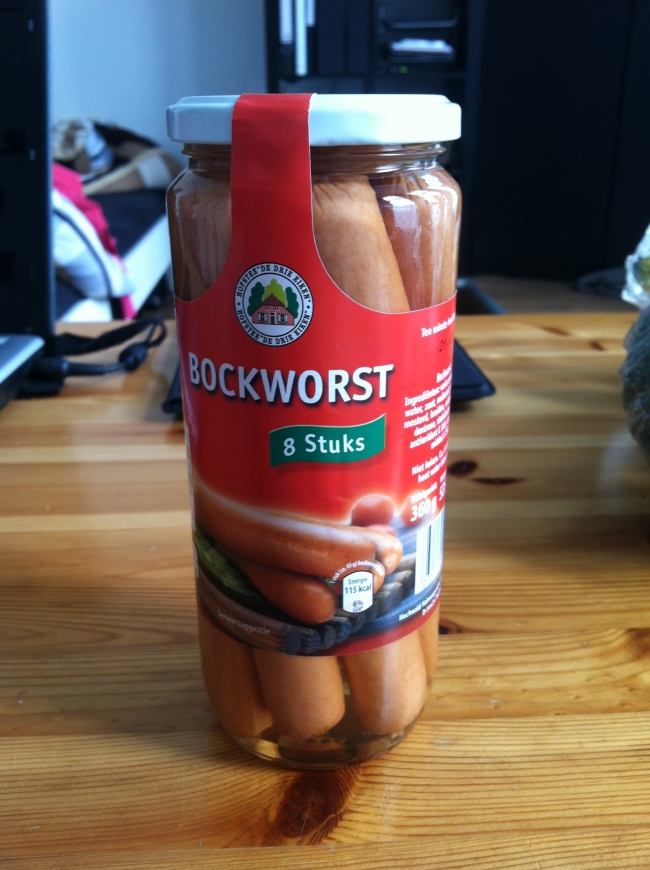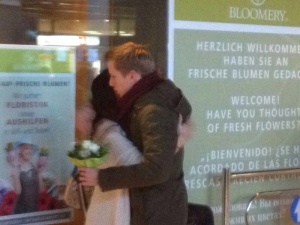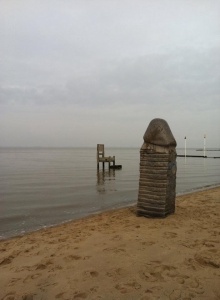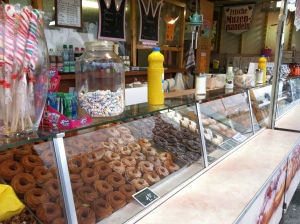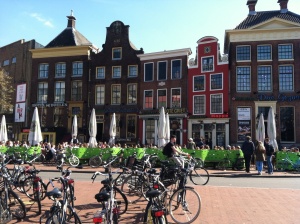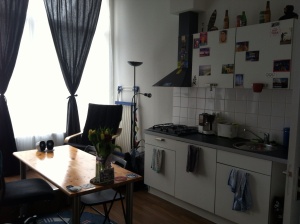The markets in Groningen are the best. THE BEST.
Continue reading
Leap of Faith Life
Leaps of Faith in Life, Travel, Yoga, and Happiness
Tag: Dutch
I created a bucket list of things to do in my new Dutch city of Groningen (with a German boyfriend), but after I created it, I felt a bit like I’ve wasted my time thus far – two months into my journey.
So I decided to do the opposite both, and write out all the things I originally wanted to find abroad before I left the States and have since found in my daily living and wanderings. Things that make me feel a bit closer to home and make my new surroundings that much more friendly.
I’ve been lost many times abroad –
Tips and Tricks to Make the Inevitable More Enjoyable
Getting lost while abroad just happens. Accept it now, and try to appreciate it for what it is, an adventure and a sightseeing tour. Just keep your head up – you were meant to see something along the way! Soak in the opportunity to view the local fauna and structures around you.
My ultimate ‘got lost’ adventure was in Spain, and was the first time I was ever lost abroad (and a four hour ordeal!). Luckily, avoided a major incident while in South Korea, which is funny, since Seoul has 10 million people, and Sevilla has under a million.
My adventure in Groningen
Here in the Netherlands, three weeks in, I tried to attend a meditation group I found from Couchsurfing.com, directly after my first yoga class in Dutch, I had 45 minutes to walk a 20 minute distance at the most, plenty of buffer. I even planned ahead and snacked on a peanut butter sandwich and a tangerine during the easy part of the walk.
Trying to find the meditation class: Fail
After my first yoga class in Dutch, I felt like I could take on the world. Upbeat and energized, I held my head high as I walked back in my familiar neighborhood along the canal. I ate my food on the way, birds chirping, blue sky and breeze flowing. Ten minutes later my familiar surroundings faded into an unfamiliar neighborhood; unfazed, I pulled out my crumpled direction street names and my iPhone to look at the picture I took of the map. Despite having 30% battery, I had a black screen with the sad looking empty battery picture staring back at me. Only slightly exasperated at this point, I trooped on, to rely only on the street name scrap of paper.
Europe Navigation Secret, Quirk #1
Now, let me tell you a little secret about European streets (gained from my first escapade in Spain – learned 2 hours into that adventure). The street names are not displayed on posts (like in the US), they are displayed on the sides of the buildings at the intersections. Sometimes they are placed further in on the building than one can appropriately see from the street, in my opinion, but I digress. A bit of hunting is necessary. I gave up trying to not look like a tourist and was full on gawking once in the unfamiliar neighborhood.
Quirk #2: Harry Potter Staircase Moving Streets
The odds were in my favor though, because while I looked for the next street name, I realized I ended up on the exact streets I looked for, before needing to turn. I attribute this on the streets changing name at every intersection (this is a bit dramatic of me, but often true, so watch out for it). Pleased with myself, I was right on schedule 15 minutes in as I stumbled on every street name I needed, right up until the until the second to last one. In my excitement of the street names appearing, I missed looking at ONE street corner. This caused me a 45 minute escapade down the road to another canal, another neighborhood, and more frustration.
I finally was forced to admit my conceit, after hearing a bell tower somewhere in the distance (there is always a bell tower close by in Europe) I realized the meeting had started, and I would have to come next week. At least I figured out the location, even if it was in the 9th hour. I walked home defeated, tired and cold, only to realize I was locked out when I got home (which is a story for another time), but boyfriend to the rescue 40 minutes later. He thoroughly enjoyed my detailed recount!
But, what did I see and learn you ask? Well, I learned the meditation class was much closer than I thought, I found an extra close grocery store, and learned the area behind our apartment neighborhood and how it all connected together.
The Things to Carry on an Adventure
It’s always advisable to make sure you are well prepared your first few times out:
- Backpack or large purse to keep a snack
- A layer you can add if it gets cold (or dark!)
- Tissue (my nose tends to run when I walk around a lot, especially if there is a breeze!)
- Camera or camera-phone
- Book to rage-quit at a local café somewhere
- Of course a bit of money and ID.
*I usually try to wear my most comfortable shoes when venturing out, but I don’t always remember.
It’s always advisable to write down your address, phone number (if you have one), a local large street or landmark near you, and a few key phrases in the local language if you are still learning it – all on a piece of paper you carry with you the first few weeks as well. It makes asking directions much easier and less scary. More reliable than an iPhone dying mid-adventure!
Language!
Getting lost creates a wonderful opportunity to practice the local language. It forces you into the scary place of needing to walk up to a stranger and look a bit ridiculous using just a few key phrases and large hand signals, but most people are extremely willing to help out. I usually go into a shop that looks cheerful and friendly with a couple customers inside, or to a family on the street. I also often follow the kid stranger-danger rule if all else fails, and walk up to a woman rather than a man to ask for directions.
Stranger Danger
Always pay attention to your next steps – if you are lost at night, notice how lit up the area is that you are headed into. Ideally, you would like to be able to see at least two different sets of people around you. If you notice the area you are entering into is really dark or really isolated, just turn around and retrace your steps to another area to head back in the direction you want. There is no need to get into a weird situation.
I did this with my boyfriend in Colombia, we were coming back from a street concert, fighting a little, a bit lost and not paying attention as we headed to the bus stop. It was only 6 pm or 7 pm, but the sun goes down really quickly in that part of the hemisphere, so it was pitch black out. We suddenly stopped talking and noticed it was a way darker street, with some questionable looking characters coming up ahead of us – quite a bit of them. We both whispered at the same time without looking at each other, “we should turn around,” so we did, and headed back to the main street with lots of light and way more people. We just found a different route to the bus stop we needed. We decided the longer route was way better than risking it, and it quickly quashed whatever we were squabbling about.
So enjoy, going out to explore your new neighborhood, especially if you will be there for more than a few days is ideal for gathering your essential kit, and trying out your navigation skills!
Do you have any similar adventures?
Something as mundane as shopping for food can be a fascinating museum of cultural anthropology when in a grocery store abroad. I hope I’m not the only one that loves walking around just staring at all the different types of packaging, sections and foods available. You can learn a crazy amount about a culture by simply viewing how it’s food looks on shelves!
Shopping in the Netherlands
A large difference from stores in the U.S. popped out at me right away, in the form of waist-high gate door flaps after entering the store through the main doors. Don’t let these misdirect you from the entrance – push right on through to enter. The metal posts are a bit intimidating when I entered the first time, as I was already confused about the lotion of the entrance. I could just imagine people running after me or alarms going off because I went in the wrong door (or flap). That tends to happen when I’m abroad though, I imagine people are extra-interested in what I’m doing – since I have no idea what I’m doing! In reality, people don’t care (until you do something really crazy).
The main differences from American to Dutch grocery stores
1) Complementary coffee! First you have to figure out how the machine works though, and for that I believe you will need a local. Also, make sure it doesn’t have a price next to the buttons for the different types of drinks, because every now and then it’s not. Tricky!
2) Extra packaged veggies and fruit – a lot of plastic:
3) Crazy fun labels:
4) General advice about everything: Try it – you’ll like it! When in doubt, just try it. You will either find your favorite thing on the planet, or know exactly what to avoid for the next trip. Trial and error baby!
5) Fresh flowers – Of course I heard the Netherlands was the land of tulips, but they really are everywhere! It is so cheerful, I have taken to buying a a tulip bunch every week for 2 or 3 Euros, simply because it warms up our apartment so much. There are great street flower vendors everywhere as well:
6) Wieners in a glass bottle! (Cheating – this was from the German grocery store, but located in the Netherlands)
7) They sit, we stand. The women (90% of the time it’s a woman) behind the check out lanes sit in chairs as they check you out at lightning speed (I attribute the lightning speed to all those packaged fruits and veggies – no typing in codes!) Not sure whether sitting or standing is better in the log run – there are arguments that sitting is the smoking of our generation, but I admit I have to look into the statistics behind that as a yoga teacher, but, I digress…
8) BYOB – In pretty much every country I’ve shopped for food in, they’ve required a small payment for plastic bags (not much paper available that I’ve seen). This small fee gets everyone to re-pack old plastic bags into their purses and backpacks like crazy. I love being able to do this! Before it became a thing to bring your own cloth bags to the grocery store in the States, I felt like such a weirdo bringing my own bags. Win for the environment!
Tips and tricks when in a foreign grocery store
-Match the main words on the label to the main words on the shelf price tag
This works when you have no idea how to read the language and need to figure out what the price is. It works for Asian languages as well in my experience, just match up the order of the characters instead of the letters.
-Be prepared with your home-credit card and cash
Some stores don’t take VISA or the other major forms of payment AT ALL. Weird I know, but they only accept cash or bank cards from in-country. Good to check before hand, or bring two forms of payment at first.
-Look out for card-only or cash only lanes
Be prepared if you only have one form of payment on you to go in the correct lane. Some check-out lanes don’t have the capability to take one or the other type of payment, which can lead to an embarrassing interaction. They usually always have pictures above each lane if that’s the case – little coins and bills for cash and rectangles for credit cards.
-BYOB: Bring your own bags
As I outlined above, most other counties have adopted the pay-per-plastic-bag policy, a small fee, but enough to make it OK to hoard bags in your purse or backpack.
-They usually ask if you want your receipt at the end – learn how to say yes or no
Or just smile and say ‘sorry’ and they will either switch to English or print it out automatically.
-UNLESS: Watch if they staple the receipt to your bag or staple your bag closed
they might check your bag at the door with your receipt
-Learn how to say thank you – Always a nice touch at the end, especially if you’ve had to stumble through the transaction, or spoken English with them the whole time.
-Watch if you need to pack your own bag, or if a local does it for you – Usually, you don’t need to tip the baggers, but just watch those that are around you or go in front of you for the social queue. That is the most difficult thing to get used to in my opinion, not tipping for common things like taxi rides or a beer. Refer to country guides for the social norm.
-Some stores have guards at the entrances that put stickers on water or soda bottles when you enter the store
If you have any poking out of your purse or bag, they place the store name on it to show you didn’t steal. Kind of nice!
-Many countries have isle-specific helpers that work in each area
Usually to answer questions on the products or help you find things in the cosmetics and personal care isles; don’t be surprised if they come up to you and ask you some things in the local language. Just smile and say ‘sorry’ if you don’t know what they’re saying. Usually, they will just smile and walk away, or switch to English.
-Don’t be fooled by the price – always know the conversion roughly – I still get excited by the price on things in Europe – I’m used to the exchange rate being in-favor of the county rate. NOT IN EUROPE OR THE UK!
-Some stores offer complementary coffee- Watch to see how people take it, if they pay, or if there is a price listed next to the drink buttons (since sometimes it’s not complementary!).
-Matching the code on the product to the code on the price – Like I stated above, it is the BEST way to figure out the price on the product if you can’t match up the product name. It’s a handy tool I’ve used even in the US, since sometimes the products are switched around on the shelf, and you can’t quite tell the price, especially if it’s on sale. That long numeric code under the scanner image will match up to the product’s number under the scan – just use the last four numbers as they can be quite long. I’ll add a picture here ASAP.
So no matter if you are at a resort town with tons of amenities that feel like your home country’s or you are thousands of miles away in a small city located in a different country, check out the local grocery store or market. You will learn a ton about the local culture and customs, as well as find a new favorite food (or a great story to tell about some not-so-great-food). Cheers!
Do you have a crazy grocery store story from abroad?
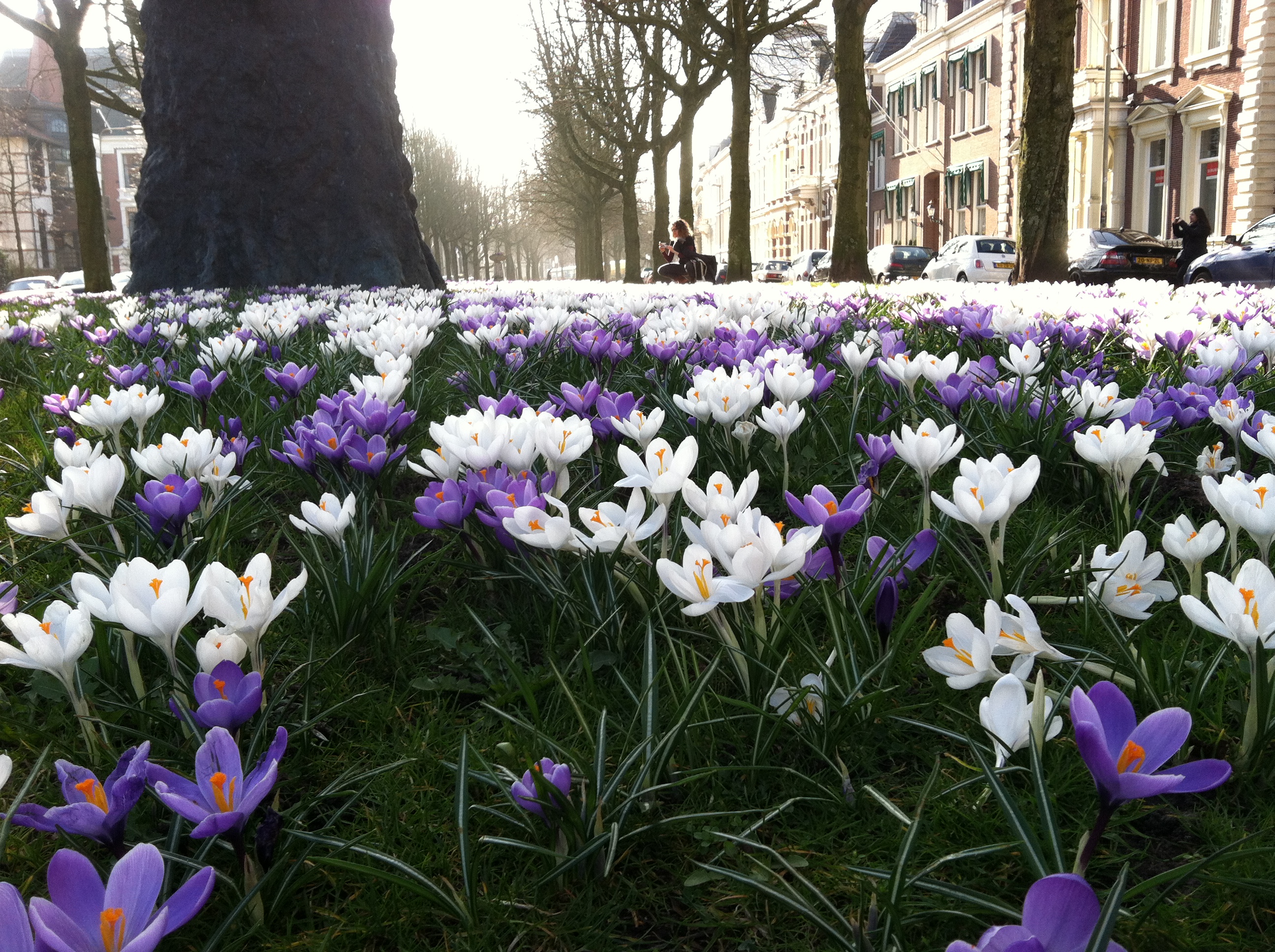
Enjoying the sun and the greenery everyone said wasn’t available in the northern part of the Netherlands
After my arrival went like this…
…I felt myself relax after months of questioning how my arrival to Germany would be received, after a 6 month long distance relationship with H (with two one week Latin American vacations to visit him in between). My nerves seemed to calm even further after a good night of sleep and a long walk around the North Sea.
There is something about the sea air, holding hands, gluhwein, a painting of a whale squirting a large rainbow in the air to make you feel normal again.
And to ponder the question how this happened…
And of course proper German pastries:
H’s parents were so warm and contentious as well – before dinner the second night H gave me my belated birthday and Christmas presents, and H’s mom presented me with pink slippers for their home and a new pink towel for my home in Groningen.
Later that evening, we sat in front of their fireplace, and I watched the BBC while H worked on school work next to me. I felt at home, at peace, and more relaxed than I had allowed myself to be in months. All the preparation and listening to my gut on this leap of faith had left me more drained than I realized. I saw how I built a shield around my feelings to make sure if H acted differently when I arrived in Germany, or his energy was weird, I would be ok and figure things out and move on. Thankfully nothing had changed, and H was still the attentive and caring guy I fell in love with in the states (mushy I know, but such a relief I cannot tell you).
Before I knew it we had the car packed up on Sunday after my Friday arrival, and we were off to drive the 90 minutes to Groningen. Let me tell you, the countryside between Germany and the Netherlands is beautiful, and filled with windmills.
We had some time while waiting for our apartment keys (the super was late because, well you know, last night was Saturday night after all!), which we filled with picture taking of our new neighborhood.
Once we got the keys I had the shock of my life when I walked in and finally saw how small the studio actually was. I remember the panic on my face mirrored on H’s face, and his mother trying to make us both feel better with her limited English. With three hearty Germans in the room, and one bewildered American, we set to work cleaning, cleaning, cleaning.
H and his dad went to his old place to pick up the rest of his furniture from the one room he rented in a student flat, and thankfully the fuller we made our room the larger it seemed. Quite the little trick our place played on us.
I actually enjoyed putting away our new plates (donated by H’s lovely parents, along with many other items around our apartment), I felt like a dork – I was so excited about using the guest plates for guests in OUR place. This place we get to share and call our own.
After a day of setting up and cleaning, we ate the soup H’s mother brought along with us and said our goodbyes.
Left alone in our new studio, H and I both laughed and toasted with home-made liquor from his mother, promising to not kill each other in the new place. So far, that promise has worked out well :)
So this leap of faith paid off in full. If we both continue to communicate, stay open and honest with one another, we stand a chance of this whole adventure working out. So far, so good.
What was your last big leap of faith?
© 2025 Leap of Faith Life
Theme by Anders Noren — Up ↑

